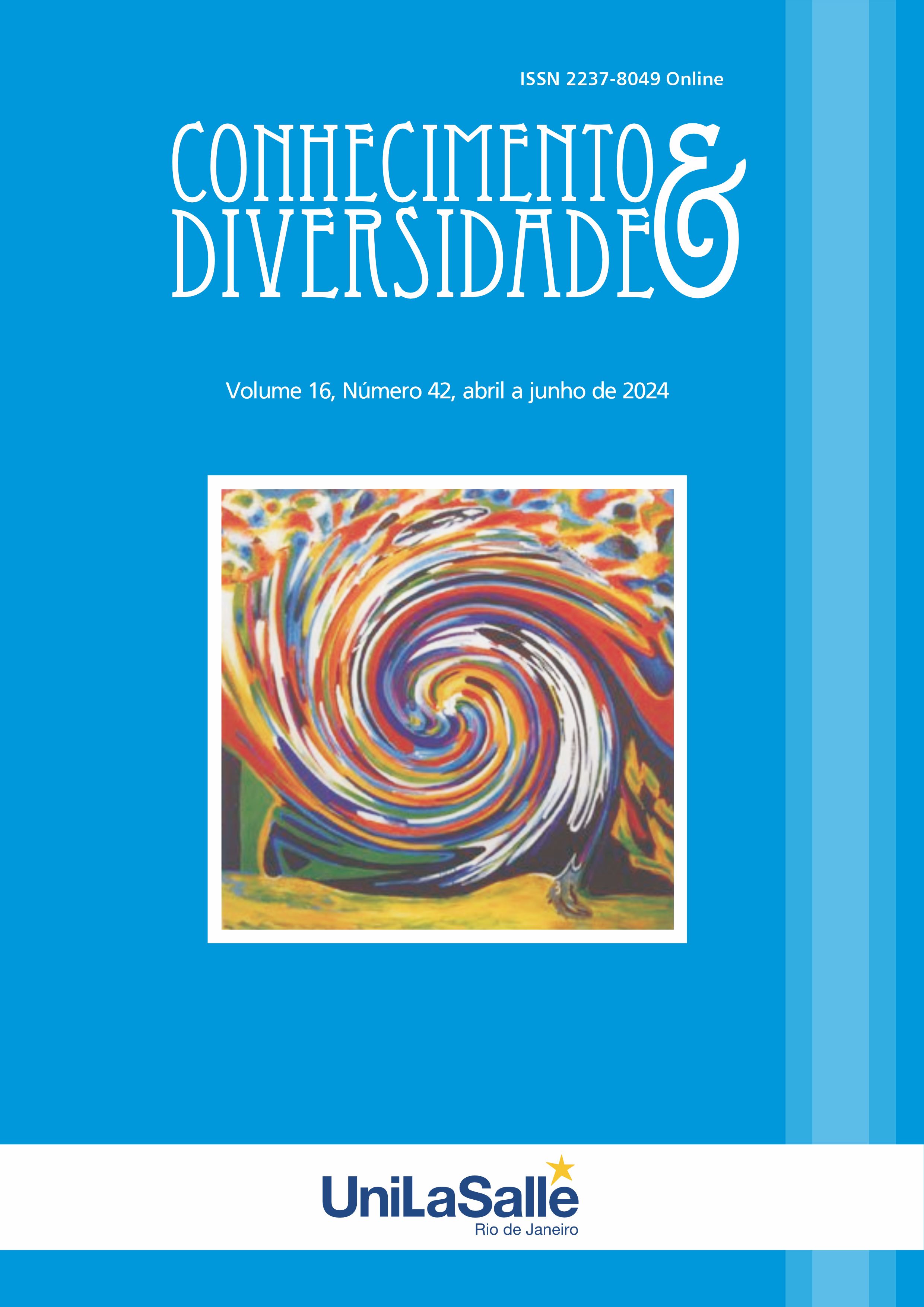ENSURING CHILDREN'S RIGHT TO EDUCATION
BALANCING LEGAL RESPONSIBILITY AND PARENTAL AUTHORITY ARBITRARINESS
DOI:
https://doi.org/10.18316/rcd.v16i42.11666Keywords:
Right to education for children, legal responsibility, Adult education, Arbitrary authority, arentsAbstract
In Saudi Arabia, the right to education for children is considered of utmost importance through the official education system, which provides a legal framework to protect them. This system mandates the provision of basic education for all children without any discrimination. and it is essential for parents to actively participate in this field by cooperating with educational authorities and providing a supportive environment for children's learning. Despite these legal guarantees, there remain challenges related to effectively implementing these policies, and there may be instances of arbitrariness or negligence in providing education by parents. Therefore, establishing effective mechanisms for monitoring implementation and holding responsible parties accountable is necessary. Additionally, emphasis is placed on raising awareness about children's rights and the importance of obtaining a good education within society. Consequently, ensuring this right requires integrated efforts between the government and civil society to improve the quality of education and its provision.
References
Arroio, A. (2019, June 18). EDUCATION AS A HUMAN RIGHT AGAINST HATE SPEECH AND INTOLERANCE. Problems of Education in the 21st Century, 77(3), 314–316. https://doi.org/10.33225/pec/19.77.314
Wang, Y., & Navarro Nicoletti, F. (2023, September 25). Entertainment Education and Citizens’ Participation in COVID-19 Pandemic Response: A Case Study of Chinese Citizens on Social Media. Social Sciences, 12(10), 535. https://doi.org/10.3390/socsci12100535
Abdullah Alharbi, B. (2017, October 31). Citizenship Education in the Kingdom of Saudi Arabia: History and Current Instructional Approaches. International Journal of Education and Literacy Studies, 5(4), 78. https://doi.org/10.7575/aiac.ijels.v.5n.4p.78
Sripati, V., & Thiruvengadam, A. K. (2004, January 1). India: Constitutional amendment making the right to education a Fundamental Right. International Journal of Constitutional Law, 2(1), 148–158. https://doi.org/10.1093/icon/2.1.148
Silva, M. M. (2017, August 26). The right to education as a fundamental right in democracy. New Trends and Issues Proceedings on Humanities and Social Sciences, 4(1), 220–225. https://doi.org/10.18844/prosoc.v4i1.2258
Ubaydullayev, S. (2021, July 16). "ATTENTION TO CHILD RIGHTS IN UZBEKISTAN AND THEIR LEGAL PROTECTION UNDER NATIONAL LEGISLATION ". Tsul Legal Report, 2(1), 33–42. https://doi.org/10.51788/tsul.lr.2.1./nrvq9711
Prokop, M. (2003, January). Saudi Arabia: The politics of education. International Affairs, 79(1), 77–89. https://doi.org/10.1111/1468-2346.00296
McMellon, C., & Tisdall, E. K. M. (2020, March 10). Children and Young People’s Participation Rights: Looking Backwards and Moving Forwards. The International Journal of Children’s Rights, 28(1), 157–182. https://doi.org/10.1163/15718182-02801002
Alghamdi, A. A. (2022, January 12). Exploring Early Childhood Teachers’ Beliefs About STEAM Education in Saudi Arabia. Early Childhood Education Journal, 51(2), 247–256. https://doi.org/10.1007/s10643-021-01303-0
Kotzmann, J. (2018, April 5). The Human Rights-Based Approach to Higher Education. Oxford University Press. http://books.google.ie/books?id=SqZTDwAAQBAJ&pg=PR55&dq=A+Human+Rights+Based+Approach+to+Education+For+All&hl=&cd=1&source=gbs_api
Hurtley, S. M. (2014, October 14). Reconstituting the Right Stuff for Division. Science Signaling, 7(347). https://doi.org/10.1126/scisignal.aaa0462
Hrabynskyi, M. I., & Hrushko, M. V. (2023). International legal responsibility of the successor state for violating the obligations of the predecessor state. Legal Position, 1, 101–105. https://doi.org/10.32782/2521-6473.2023-1.19
Alharthi, M. (2022, January 22). Parental Involvement in Children’s Online Education During COVID-19; A Phenomenological Study in Saudi Arabia. Early Childhood Education Journal, 51(2), 345–359. https://doi.org/10.1007/s10643-021-01286-y
Harel Ben-Shahar, T. (2015, April 12). Equality in Education – Why We Must Go All the Way. Ethical Theory and Moral Practice, 19(1), 83–100. https://doi.org/10.1007/s10677-015-9587-3
Rina El Maza, R. E. M., Yuyun Yunarti, Y. Y., Nazeri, N., & Rahmat Hidayat, R. H. (2022, April 18). Sharia Economic Law Regulation on The Development of Sharia Financial Institutions in Indonesia. Journal of Social Work and Science Education, 3(2), 154–167. https://doi.org/10.52690/jswse.v3i2.290
Suryana, Y., Kurniaty, Y., & Martha, A. E. (2023, May 1). A Model for Protecting the Right to Education for Child Labour. Jurnal Hukum Ius Quia Iustum, 30(2), 371–395. https://doi.org/10.20885/iustum.vol30.iss2.art7
McDonagh, M. (2013, February 20). The Right to Information in International Human Rights Law. Human Rights Law Review, 13(1), 25–55. https://doi.org/10.1093/hrlr/ngs045
Kalantry, S., Getgen, J. E., & Koh, S. A. (2010, May). Enhancing Enforcement of Economic, Social, and Cultural Rights Using Indicators: A Focus on the Right to Education in the ICESCR. Human Rights Quarterly, 32(2), 253–310. https://doi.org/10.1353/hrq.0.0144
McCowan, T. (2010, November). Reframing the universal right to education. Comparative Education, 46(4), 509–525. https://doi.org/10.1080/03050068.2010.519482
Arts, K. (2014, December). Twenty-Five Years of the United Nations Convention on the Rights of the Child: Achievements and Challenges. Netherlands International Law Review, 61(03), 267–303. https://doi.org/10.1017/s0165070x14001272
ALMedlij, M. A., & Rubinstein-Ávila, E. B. (2019, January 3). The Development of LD Education in Saudi Arabia: Services and Implications for the future. International Journal of Modern Education Studies, 2(2), 83. https://doi.org/10.51383/ijonmes.2018.29
Wang, Y. (2020, September 28). Research on the Conditions of “Right Protection Fee” in State Compensation. Lifelong Education, 9(6), 75. https://doi.org/10.18282/le.v9i6.1303
MacKenzie, A., Bower, C., & Owaineh, M. (2020). Gratitude versus children’s rights: An exploration mothers’ attitudes towards disability and inclusive education in Palestine. International Journal of Educational Research Open, 1, 100001. https://doi.org/10.1016/j.ijedro.2020.100001
Tarrow, N. (2001, May). Book ReviewsThe Universal Right to Education: Justification, Definition, and Guidelines.by Joel Spring Mahwah, N.J.: Lawrence Erlbaum Associates, 2000. 191 pp. $19.95 (paper). ISBN 08058‐3548‐2. Comparative Education Review, 45(2), 296–298. https://doi.org/10.1086/447671
Jongin Baek. (2007, August). A Study on the U.S. Legal Systems for Protecting the Right to Education of Persons with Disabilities. Public Law Journal, 8(3), 539–560. https://doi.org/10.31779/plj.8.3.200708.024
Rajab, A., & Wright, N. (2018, February 27). The idea of autonomy and its interplay with culture in child-centered education: evidence from practitioners in preschools in Saudi Arabia. Early Years, 40(2), 174–187. https://doi.org/10.1080/09575146.2018.1434134
Downloads
Published
Issue
Section
License
Copyright (c) 2024 Doaa Mohamed Ibrahim Badran, Mahmoud Abd Elhady

This work is licensed under a Creative Commons Attribution 4.0 International License.
As recommended by the Public Knowledge Project, RCD adopts for its articles a CREATIVE COMMONS Attribution CC BY 4.0 license.
This license allows others to distribute, remix, adapt and build upon your work, even commercially, as long as they credit you for the original creation.
This is the most appropriate license offered.
Recommended for maximum dissemination and use of licensed materials.



